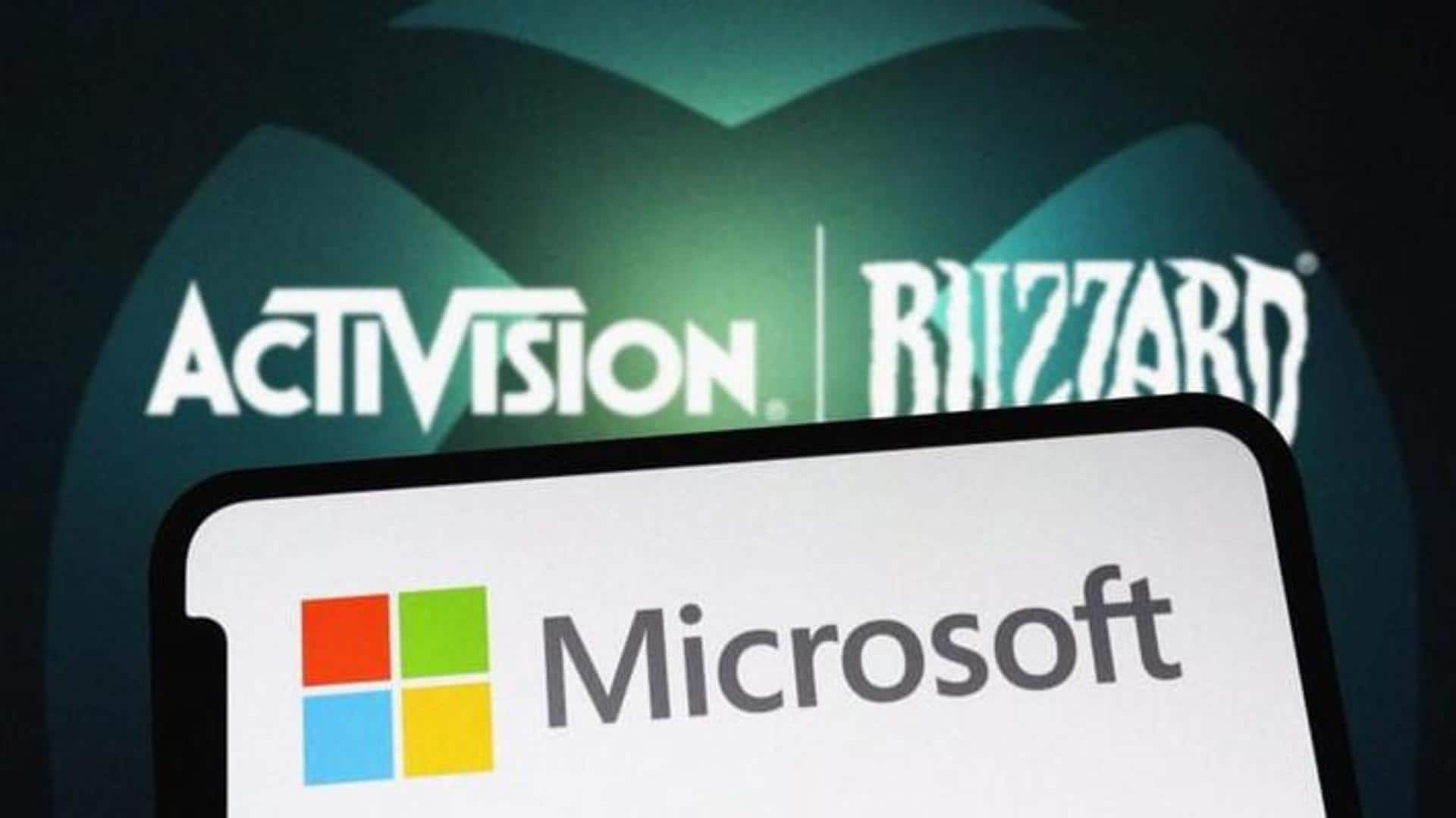
EU approves Microsoft-Activision deal: What it means for other markets
What's the story
Less than a month after the United Kingdom's competition watchdog red-flagged Microsoft's acquisition of Activision Blizzard, the deal has been approved by the European Union's antitrust regulators.
The European Commission's rubber stamp has come as a relief for Microsoft, which has been facing regulatory scrutiny worldwide over the deal.
Let's take a look at what the approval means for the deal in other markets.
Context
Why does this story matter?
Microsoft's proposed $69 billion acquisition of Activision has been in limbo since the software giant announced its plan to purchase the iconic gaming company in January last year.
However, the companies were dealt a massive blow when the UK blocked the deal. Now, Microsoft and Activision would be hoping the EU approval would change how others perceive antitrust concerns.
Concerns
Microsoft has no incentive to not distribute games to Sony
Competition watchdogs worldwide have been concerned about the deal's impact on the console and cloud gaming markets.
Microsoft's biggest rival in gaming, Sony, has been especially vocal about how the acquisition would affect the availability of Activision games on PlayStation.
The EU regulators, however, found no reason for Microsoft to refuse the distribution of Activision games to Sony.
Console
EU believes deal won't impact competition in console market
EU regulators went one step further and said competition in the console market wouldn't be harmed even if Microsoft decides not to distribute Activision games to Sony.
This might surprise Sony, which has talked about how Microsoft can harm Activision's famous gaming franchises on PlayStation.
The US Federal Trade Commission (FTC) has also sided with Sony's assessment of the deal's impact on PlayStation.
Cloud
EU agreed with CMA's concern about cloud gaming market
Although the argument against Microsoft's acquisition of Activision started with consoles, the recent focus has been on the deal's impact on the nascent cloud gaming market.
The discourse began after the UK's Competition and Markets Authority (CMA) pointed out Microsoft "would find it commercially viable to make Activision's games exclusive to its own gaming services."
The European Commission also echoed the same concern.
Remedies
European regulators accepted Microsoft's remedies
Unlike the CMA, the EU found the remedies offered by Microsoft to address concerns about competition in cloud gaming viable.
The CMA had found "significant shortcomings" in Microsoft's deals with rival gaming platforms, including NVIDIA, Nintendo, Boosteroid, and Ubitus.
However, European regulators found these deals acceptable. The European Commission also required Microsoft to license popular Activision games automatically to cloud gaming competitors.
UK
EU approval may not change UK's stance
Microsoft has finally managed to secure one of the main regulatory approvals. But will it help the company in other markets?
In the UK, the tech giant has decided to appeal the CMA's decision. It would, however, take months before the process is complete. The CMA still stands by its decision to block the deal.
The EU approval may not change the regulator's stance.
Other countries
European Commission's decision might affect case in US
In the US, the FTC has sued to block the deal. The case is still in the initial stages, with an evidentiary hearing scheduled for August 2.
The EU approval may have an impact on how the court looks at the acquisition.
The European Commission's decision might also have an impact on regulatory approval from countries like Australia, China, New Zealand, and South Korea.